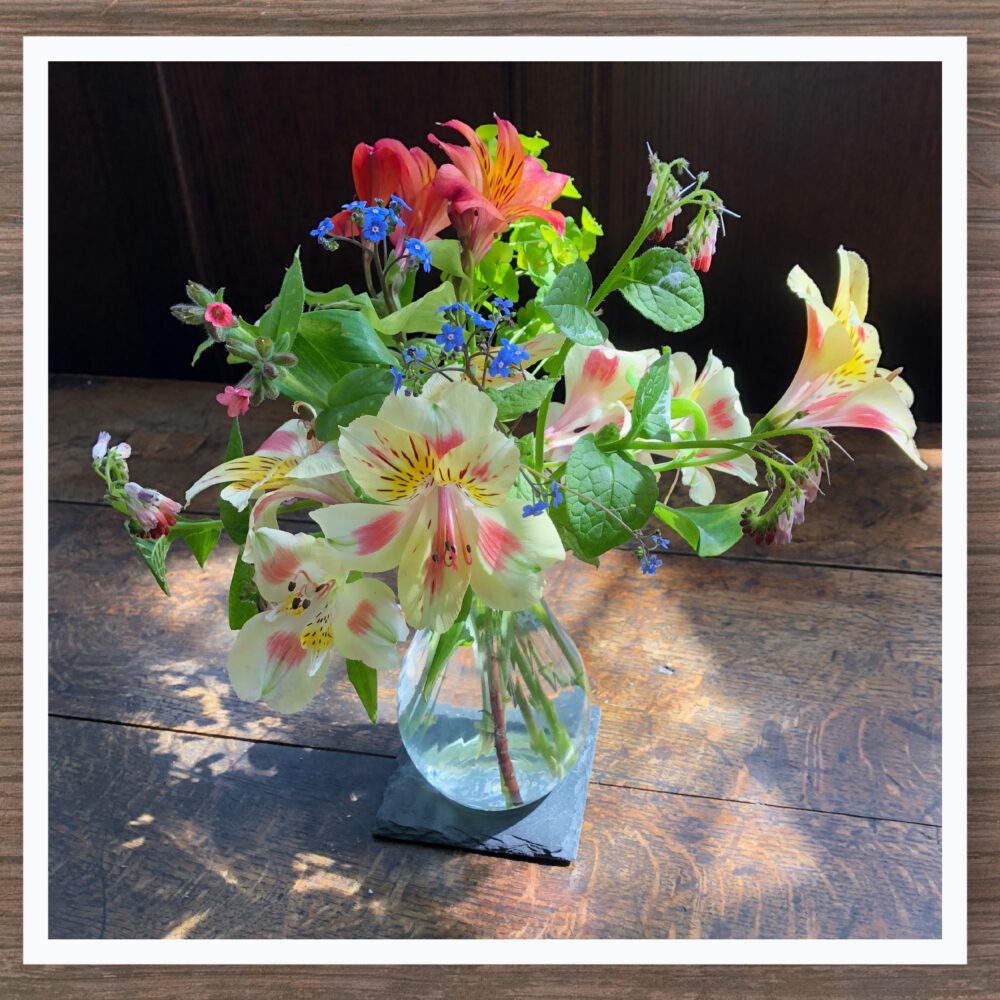
A question that we might ask today, “How can we make our meeting a community in which each person is accepted and nurtured and strangers are welcome?,” is one that would also have resonated with Margaret Fell Fox. Known as “The Mother of Quakerism,” Margaret Askew was born in 1614 in the Lake District of northern England. She married and became Margaret Fell at the age of 17 and was the mother of eight surviving children with Judge Thomas Fell. When she died in 1702 at the age of 88, Margaret Fell Fox had outlived her second husband, George Fox, by eleven years. The Quaker movement in 17th century England survived early persecution and grew as a religious movement in part because of Margaret’s social privilege, organizing skills, care for community, and deep faith.
From her position as an educated woman of power and social standing in Cromwell’s England, Fell was able to defend and nurture Quaker founder George Fox and his followers, many of whom endured persecution or death as the movement grew. In addition to bringing organization and stability to the early Friends movement, she was also an able biblical exegete who authored sixteen books on Quaker distinctives such as pacifism, the role of women in the Church, and eschatology.
— Sally Bruyneel, Margaret Fell (1614-1702): A Brief Biography Of The Mother Of Quakerism
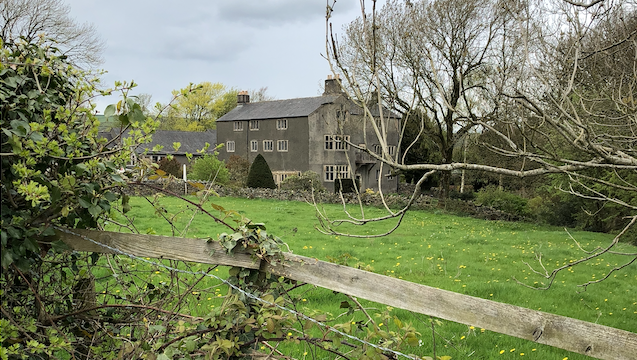 Cradle of Quakerism
Cradle of Quakerism
Margaret had a gift of welcome. Visitors and travelers frequently received hospitality at her home. George Fox’s visit to the Fell family home Swarthmoor Hall in June 1652 changed Margaret’s life forever. She heard Fox, a young preacher with a new message, ask: ‘Then what had any to do with the Scriptures, but as they came to the Spirit that gave them forth. You will say, Christ saith this, and the apostles say this; but what canst thou say? Art thou a child of Light and hast walked in the Light, and what thou speakest is it inwardly from God?” Fell wrote that the experience:
opened me so, that it cut me to the heart; and then I saw clearly that we were all wrong. So I sat down in my pew again, and cried bitterly; and I cried in my spirit to the Lord, ‘We are all thieves; we are all thieves; we have taken the Scriptures in words and know nothing of them in ourselves.
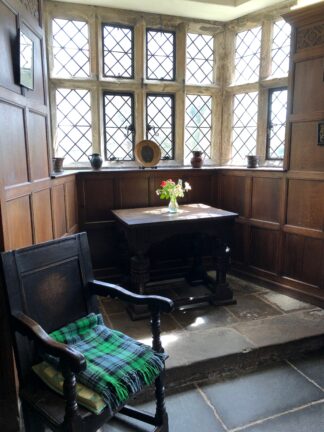
Swarthmoor Hall became a haven for early Friends in the 17th century. It was “the cradle of Quakerism,” where Fox and Fell gathered with fellow seekers to worship in the Great Hall, and where the organization of the the young Quaker movement took shape. (Judge Fell did not become a Friend, but also did not hinder his wife’s ministry; he died in 1658.)
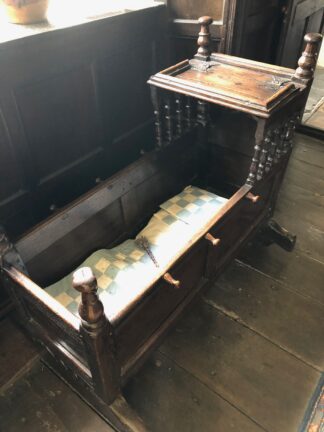
Currently closed to the public during renovation, the hall and grounds are a museum and bed and breakfast today. If you would like to attend meeting for worship at Swarthmoor Hall by Zoom, email info@swarthmoorhall.co.uk to be sent more information.
Women’s Speaking Justified
One of the earliest “publishers of Truth,” Fell has often been assigned the more traditional function of protector, ‘nursing mother,’ and helpmeet to her second husband George Fox. But Margaret had tools to support the early Religious Society of Friends that Fox did not — her home at Swarthmoor Hall, her strong writing and organizing skills as an estate manager, and her education and wealth. (The £6000 she inherited when her father died would be equivalent to around $1.5 million today).
Margaret supported the founding of the Quaker women’s meetings for business that responded to the inquiries about who was imprisoned, hungry, or needed help in communities of Friends and among their neighbors. She wrote letters to English monarchs on behalf of Friends, and between 1660-1698 made ten journeys to London where she lobbied the king on behalf of Friends, and ministered to the needs of new Quaker meetings.
-
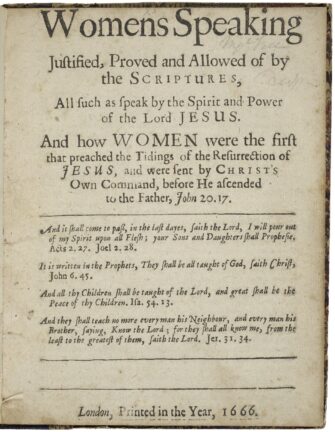
Folger Shakespeare Library http://luna.folger.edu/luna/servlet/s/117c23
Margaret herself was arrested at Swarthmoor Hall for failing to take an oath and for allowing Quaker Meetings to be held in her home. She was sentenced to life imprisonment and forfeiture of her property, and spent 1664-1668 in prison, including four months in the infamous Lancaster Gaol. It was during this time that she wrote, “Women’s Speaking Justified, Proved and Allowed of by the Scriptures, All Such as Speak by the Spirit and Power of the Lord Jesus And How Women Were the First That Preached the Tidings of the Resurrection of Jesus, and Were Sent by Christ’s Own Command.” Her work makes an argument for equality of the sexes based on spiritual equality — all have the Light within, and all may be prophets of truth.
Margaret Fell and George Fox married in 1669, after obtaining clearness from her children and Friends, but were not destined to spend many years together. Fox’s travels to the American colonies and London, and additional prison time for both, kept them apart. In 1689, King James II issued the act of Toleration and all Quakers were freed from prison.
In the last decade of her life, Margaret firmly opposed the efforts of Friends in Lancashire to maintain certain traditional Quaker standards of conduct like plain dress, which she called, “a silly poor Gospel.” (Rumor has it that Fox once bought her a red petticoat!)
Margaret Fell was asked that critical question, “What can you say?” and in so many ways she answered with a life that spoke.
Learn more about Margaret Fell
This spring, Woodbrooke, the Quaker study center in the UK, is offering an online course “The Mother of Quakerism: the life, and writings of Margaret Fell” from May 16-June 27. The course will explore the life, writings, and legacy of Fell and will look at the contributions she made “to the formation of the early Quaker movement as an organizer, counsellor, lobbyist and writer.” You can learn more about the course and how to register on the Woodbrooke website.
The Faith & Play Stories collection includes “Margaret Fell of Swarthmore Hall,” a story about Fell’s convincement as a Quaker and her witness to nurture the early Quaker community.
- Featured image: springtime flowers at Swarthmoor Hall. Photo Credit: Melinda Wenner Bradley